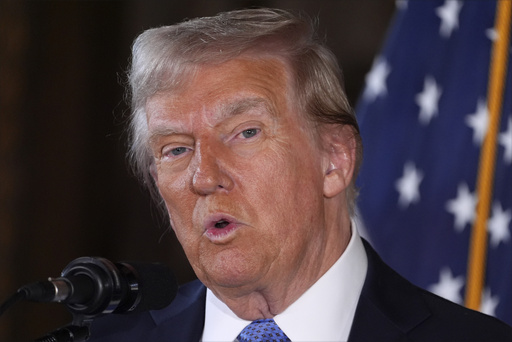President-elect Donald Trump has taken legal action against the Des Moines Register and the polling firm associated with it, alleging “brazen election interference.” This lawsuit was filed following the publication of a survey on the weekend before the election that showed Democratic candidate Kamala Harris leading Trump by a narrow margin of three percentage points in Iowa.
In response, Gannett Co., the parent company of the Register, has dismissed Trump’s lawsuit as baseless and expressed its intention to robustly defend its First Amendment rights.
This legal move is part of Trump’s ongoing campaign to challenge media organizations that he believes have treated him unfairly. Recently, ABC settled a defamation lawsuit by agreeing to contribute $15 million towards a Trump presidential library, following a statement made by George Stephanopoulos that inaccurately claimed Trump had been found civilly liable for rape.
The poll, conducted by the recently retired pollster J. Ann Selzer, raised eyebrows as it suggested that Trump had lost his previously established lead in a traditionally Republican state. Ultimately, in the election, Trump won Iowa decisively, finishing with more than a 13-point lead.
The lawsuit claims there was no reality to Harris’s lead in Iowa, a state known for its conservative voting patterns, labeling the poll results as “election-interfering fiction.” Trump argues that the poll not only rallied Democratic supporters but also misled the public regarding the Democrats’ actual standing, which forced Republicans to redirect campaign resources to contested areas.
Filed late Monday in Polk County district court, the lawsuit references Iowa’s consumer fraud law, focusing on the desire for a jury to multiply any awarded damages by three rather than specifying a dollar amount. Trump indicated that he hopes this case will deter others from releasing misleading polls designed to influence election outcomes in favor of Democrats.
Regardless of the outcome, this legal challenge could have broader implications outside of Iowa. Lark-Marie Anton, a spokesperson for the Des Moines Register, acknowledged that while the pre-election poll did not correspond with Trump’s victory margin, the paper stands by its reporting and believes the lawsuit lacks merit.
Selzer, the pollster involved, has not commented on the lawsuit specifically but has expressed her disbelief regarding the accusations against her methodology. She stated that it is contrary to her ethics to design a poll with the intent to produce a predetermined outcome and finds it perplexing that such allegations would arise against her.
While the legal battle unfolds, both sides remain firm in their positions regarding the integrity and impact of polling in the political landscape.


